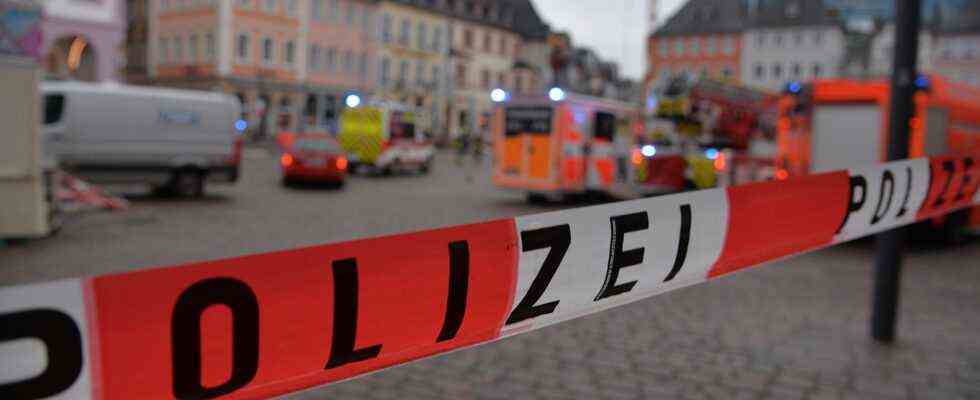Status: 08/19/2021 4:17 a.m.
He killed five people on a rampage in Trier. From today on, the 51-year-old has to answer before the Trier district court. For some bereaved relatives, the process is part of the process of coming to terms with them.
By Franziska Grote, SWR
Wolfgang Hilsemer can remember exactly: The Trier was visiting his daughter when he read the headline on the cell phone: “Terrorist attack in Trier”, in the city center. At first he didn’t even notice that his sister Uli and her husband hadn’t written to the family group chat as usual. His oldest sister called him hours later and said: “Uli is dead.” At first he couldn’t have realized it at all: “It’s hard to lose someone this way. Other than through an illness.”
“He must be punished severely”
His older sister was killed in the rampage. She was 73. His brother-in-law was seriously injured. Wolfgang Hilsemer talks about the rampage, even if he doesn’t call it that. For him it is the “accident”. It helps him to talk about it, even if you can tell that it is difficult for him. Again and again he starts to cry.
His thoughts on the alleged perpetrator, who is from the Trier district court must be responsible, are clear: “He killed my sister, injured my brother-in-law and he killed other people. He must be severely punished, he is not allowed out.”
Police and fire brigade after the rampage on December 1st in Trier: The process could now take several months.
Image: dpa
Help for the victims
Anger, despair, sadness. Often the victims also suffer from so-called shock damage, explains Detlef Placzek, the head of the victim counseling in Rhineland-Palatinate. This is a trauma that is triggered by the loss of loved ones.
This is exactly where victim counseling begins. Affected people are cared for and receive trauma therapy. But some also choose to find a way to deal with grief on their own. Others realized after a while that they couldn’t do it on their own, explains Placzek. However, it does not matter when the person concerned approaches him. “I was only recently contacted by family members who thought they could handle the trip from Trier on their own, but have now found that it is not possible. And that is precisely what we are here for, everyone can start at the time they need help. “
Mourn together
Bernd Steinmetz from the Trier disaster aftercare adds that it often helps when victims of disasters deal with them together: “We have found that people who had to suffer such a fate are more likely to find contact persons in people who are the same or a similar one Have suffered fate. ” In the case of Trier, several disaster follow-up meetings have already been held. With up to 60 participants.
The start of the process is a day that many of those affected have been waiting for. The alleged perpetrator Bernd W. from Trier is on trial. The indictment is 80 pages long and charges him multiple murder and attempted murder. the Public prosecutor accuses him, to have raced through the Trier pedestrian zone in his sports vehicle on December 1, 2020 – with the intention of killing or injuring people.
The Trier district court has only released 23 seats for spectators. The reason for this is the distance rules of the corona pandemic. The process is expected to take months. The last day of negotiations is currently set to be January 26th.
Solving a disaster
For most relatives, the process plays an essential role. It shows that the state is taking care of the matter and that the investigation is finally getting underway, explains Steinmetz from the Disaster Aftercare Foundation.
It is the same for Wolfgang Hilsemer: “I would like to be part of this process. I would like to know what is happening there, I don’t always want to know everything from third parties,” he says. “I would like to hear for myself what happened there. And as far as I know, you can let it run down to the last detail. And that interests me: why, how?” 15 of the victims and their relatives are joint plaintiffs at the trial, including Hilsemer.
Rooms for those affected
As soon as he talks about the process, his voice begins to tremble, tears well up in his eyes: “I wish that this is finally over, this ghost,” he says. “When the legal proceedings are over, I think we’ll have it packed first. And then we’ll have to see how we can deal with everything again.”
For those affected, rooms are made available in the court in which they can withdraw. And there will also be pastors on site with whom the victims can speak if necessary.

